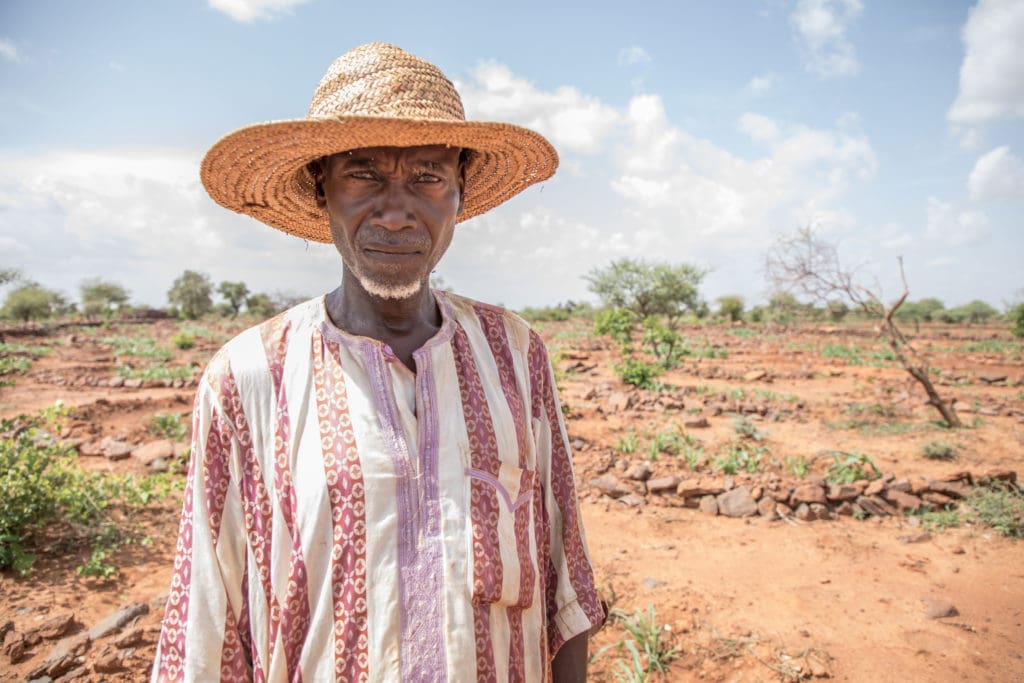Humanitarian Access Critical if Lives to Be Saved as Conflict Rages In Central Sahel

DAKAR/ROME – The United Nations World Food Programme (WFP) is today warning that unless humanitarian access is urgently granted to organizations like the U.N. World Food Programme, catastrophic levels of hunger could hit hard in parts of Burkina Faso, Mali and Niger. The stark warning comes ahead of the High-Level Ministerial Conference on the Central Sahel in Copenhagen on 20 October 2020.
Violence and insecurity have pushed 7.4 million people in the Central Sahel region of West Africa into acute hunger. The number of internally displaced people has risen from 70,000 two years ago to nearly 1.6 million today, including over 288,000 in Mali, more than 265,000 in Niger and over one million in Burkina Faso, which is now home to the world’s fastest growing displacement crisis.
“When we can’t get to vulnerable communities, we’re seeing tragic spikes in food insecurity and thousands of people pushed into further destitution in the Sahel,” said Chris Nikoi, U.N. World Food Programme Regional Director for West Africa.
“There are over ten thousand people who are currently one step short of famine in parts of northern Burkina Faso made inaccessible by dreadful violence and conflict. The world cannot wait to take action until children, women and men have died,” says Chris.
The ability of humanitarian organizations to deliver assistance to those most in need has been jeopardized by worsening conflict and insecurity. Meanwhile, aid workers are also increasingly targeted by non-state armed groups in Burkina Faso, Mali and Niger. This means that needy communities are unable to access life-saving humanitarian assistance on which they so desperately depend in times of crisis.
The U.N. World Food Programme – the 2020 Nobel Peace Prize Laureate – is urging participants at the conference to find ways for organizations to engage with communities and all actors on the ground, opening up safe passageways for humanitarian assistance to reach those in need. The conference is hosted by Denmark, Germany, the European Union and the United Nations.
The U.N. World Food Programme has continued to ramp up lifesaving assistance in response to the deepening crisis and growing needs – assisting over 3.4 million people in August alone.
The U.N. World Food Programme has scaled up to meet the growing needs in Burkina, but the financial outlook is worrying. The U.N. World Food Programme was already forced to reduce rations from July 2020 and risks a break for emergency assistance to displaced people – who have fled their homes farms and jobs and have no other options – by November. To maintain operations in the three Central Sahel countries, the U.N. World Food Programme needs $135.7 million over the next six months.
At the same time, the U.N. World Food Programme is working to strengthen resilience-building support for at-risk communities. U.N. World Food Programme interventions include the rehabilitation of community assets, improving degraded lands, school feeding and community-based nutrition activities for the prevention and treatment of malnutrition. Since 2018, more than one million people have benefitted from U.N. World Food Programme integrated resilience activities in Niger, Mali and Burkina Faso.
Broadcast quality video available:
Shotlist: https://spaces.hightail.com/receive/cNfMpNV7Mq
Streaming: https://content.jwplatform.com/videos/OuJBjvWn-wOVdt6af.mp4
# # #
The U.N. World Food Programme is the 2020 Nobel Peace Prize Laureate. We are the world’s largest humanitarian organization, saving lives in emergencies and using food assistance to build a pathway to peace, stability and prosperity for people recovering from conflict, disasters and the impact of climate change.
Follow us on Twitter @WFPUSA @wfp_media @wfp_WAfrica




